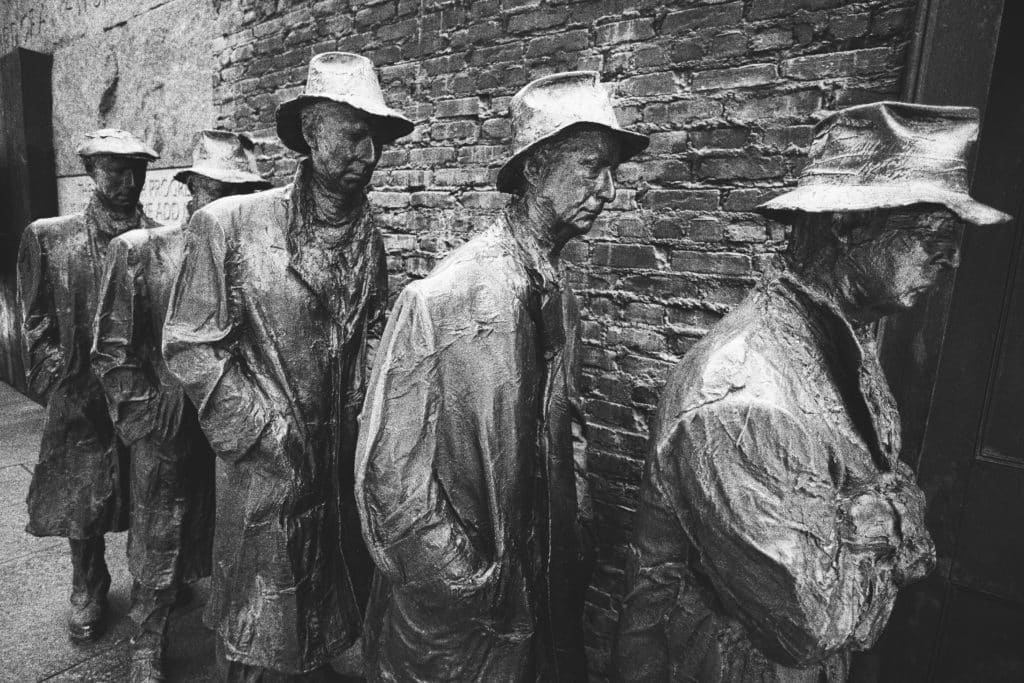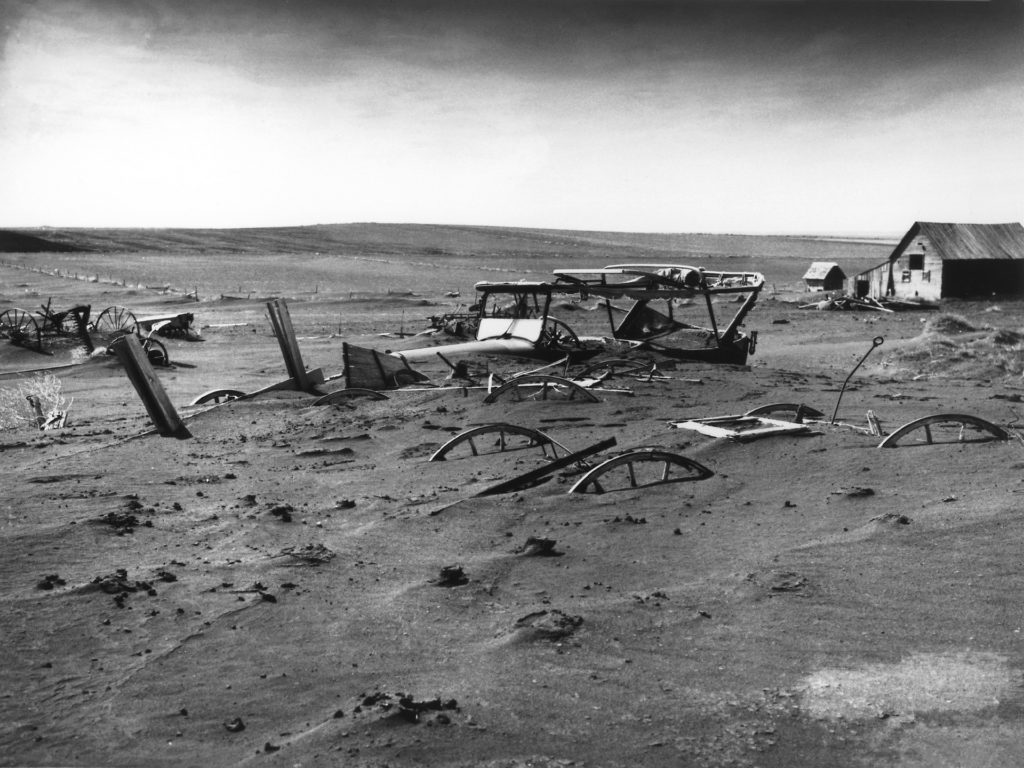The Great Depression was a severe economic depression that started in 1929 in the United States. From there, it quickly rippled worldwide. During this period, unemployment and hopelessness about the future rose to the extent that suicide rates jumped. Just like the damage done during World War 1 and World War 2, the effects of The Great Depression was no less devastating for world economies, politics, and trade.
During this period 25 percent of the population was unemployed, trade with other countries dropped by 65 percent, and the prices of houses rose more than 30 percent. It took around 25 years for the United States of America to become stable once again.
This article is about the effects of The Great Depression on the world

Negative Effects Of The Great Depression
Global Economic Decline
The economy of the USA began declining from the start of 1929, and within 5 years had shrunk 50%. The stock market lost 90% of its value, and wouldn’t recover to pre-depression prices until 1954.
Outside of the US, other nations didn’t fare much better. Australia’s unemployment hit 29%, China. Japan’s economy shrunk 8%. Unemployment and hyperinflation caused the Weimar Republic in Germany to crumble, paving the way for the Nazi Party’s seizure of power.
Civil Unrest and Distrust In The Government
The response to the crash of 1929 was met by ineffective monetary policy, particularly in the US. In 1930, President Herbert Hoover enacted the Smoot-Hawley Act. This placed tariffs on hundreds of goods, averaging between 40-48%. This spiraled out of control as other countries retaliated, decreasing global trade by 65%. This shook people’s faith in the government, leading to riots and strikes across the nation. One example was in 1930 when the US Communist party led a rally in NYC that soon turned into a 35,000 person riot.
Others resorted to crime. The Great Depression saw a surge in crime. People like John Dillinger and Bonnie and Clyde tore across the country robbing banks. People considered them folk heroes due to the role banks and the government played in the crisis.
Bank Failures
Banking and stock exchange crashed altogether during the Great Depression. Over 750 banks collapsed during 1930 alone. By the end of the great depression, 9,000 banks would close. Due to these closures, depositors faced losses of around 150 billion US dollars. When banks first started collapsing , people rushed to pull their money out, exacerbating the issue. Because of this, banks were no longer able to invest capital, taking away an important lever to pull us out of a depression.

Nationalism and Nazism
The effects of the Great Depression hit Germany’s Weimar Republic as bad as the United States. Its dependence on foreign trade and heavy levels of debt crippled. By 1933 unemployment levels hit 6 million.
Prior to this, the Nazi Party was a fringe political group. Hitler fed of the hopeless feelings of Germany. As a result, the party ranks swelled. The rest, is history.
Positive Effects
Banking Regulations
The massive banking failure of the Great Depression prompted Congress to act. This came in the form of the Glass-Steagall Act in 1933. This introduced the Federal Deposit Insurance Corporation (FDIC). Because so many people lost their savings when the banks failed, the FDIC ensured that people would recoup their losses in the future.
Sweeping Changes to Labor Laws
Though the effects of FDR’s New Deal are controversial, there were many positive aspects that came from it. In 1940 the 40-hour workweek was introduced. Eventually, a minimum wage was implemented. Also, child labor was finally banned.
Social Safety Net
When the banks failed, leaving thousands of Americans close to retirement with no prospects. The Social Security Act of 1935 aimed to fix that. It guaranteed Americans over the age of 65 a monthly income to supplement their retirement. In addition to that, the government introduced unemployment benefits to cushion the blow of events like the Great Depression.
Takeaways
The impact of the Great Depression was devastating worldwide. It took almost 25 years for the United States of America to recover from these losses. Due to the determination of the common people and smart government action, the world overcame it. Programs like the New Deal transformed nations, helping lead to the more humane world we live in now.
- Tulip Mania – The Story of One of History’s Worst Financial Bubbles - May 15, 2022
- The True Story of Rapunzel - February 22, 2022
- The Blue Fugates: A Kentucky Family Born with Blue Skin - August 17, 2021
